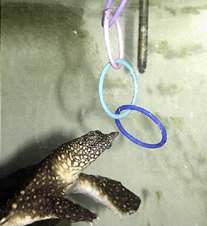We are living in a prolonged period of political uncertainty, the scale of which many of us have never experienced before. Within our industry, the potential wide-reaching implications include effects on jobs, food and medical supply chains, animal welfare legislation, pet travel, research, biosecurity and more. It is reassuring, however, that since the result of the referendum was announced, the veterinary profession has united and lobbied with a clear and prominent voice in the political arena.
Uncertainty puts pressure on individuals, businesses and industries, which are having to second guess the political landscape and plan for every possible outcome. Whether you are a non-UK EU national vet living in the UK or a research institute looking to recruit EU staff, the exact future is difficult to predict and based upon reassurances, rather than concrete and legislated certainty.
In a profession which relies heavily upon the talents of non-UK EU colleagues in every area, from Official Veterinarian (OV) work to specialist referrals, the profession’s priority has been to ensure their rights are protected and that they feel welcome in both their profession and community. The veterinary family is diverse and we want to nurture and protect this proud heritage. It is estimated that 95 percent of vets working in abattoirs graduated overseas, and members with EU qualifications totalled 22.5 percent of RCVS membership in 2017.
Even in the early days following the referendum, there were industry reports of a negative impact on recruitment in the OV sector. The RCVS reported that leading experts from overseas were turning down offers from top UK institutions, and others considered leaving as the atmosphere became less welcoming to foreign workers. Despite consistent pressure from both the RCVS and BVA, we are still waiting for the government to add veterinary surgeons to the shortage occupation list. This endangers the ease of movement of highly qualified colleagues into the UK to meet the demands of the veterinary recruitment crisis.
Brexit does present opportunity, and where we have enjoyed the luxury of movement with our pets across the borders, we have also had to deal with the consequences of abuse of the system. Irresponsible breeders have capitalised, importing puppies of questionable age and vaccination status. There are reports of imported puppies being diagnosed with distemper and parvovirus in the Veterinary Record, and four cases of babesiosis were reported by the Big Tick Project in dogs which had never travelled, indicating a possible risk that the disease could become established in the UK. With tighter control over pet travel, it will be possible to ensure more rigorous checks are made, reinstate tick treatment as compulsory prior to entry into the UK and reintroduce more rigorous rabies controls.
Under the existing Mutual Recognition of Professional Qualifications Directive (MRPQ), applicants from the EEA and Swiss nationals can automatically join the RCVS register. In the event of a no-deal Brexit, which could mean that MRPQ no longer applies, the recently passed Statutory Instrument (The Veterinary Surgeons and Animal Welfare (Amendment) (EU Exit) Regulations 2019) will allow the RCVS to continue to register degrees obtained at EEA institutions, provided the degree meets the RCVS educational requirements and standards. If these standards are not met then the Statutory Examination will need to be passed to obtain membership of the RCVS. This is an important step in ensuring we maintain high standards of care and welfare.
One thing is for certain: nothing is for certain. However, we are fortunate to have a profession united in passion for protecting welfare of animals, and rich in diversity with overseas colleagues from across the globe. Rather than engaging in the political posturing, we have representatives who speak a loud, clear and consistent message on behalf of the profession. We all have to lend weight to the voice to ensure it is loud enough to break through the noise in Westminster.
For those wanting to understand more about Brexit, the BVA has produced two informative reports that are worth a read: “Brexit and the veterinary profession” and “No-deal Brexit and the veterinary profession”.











